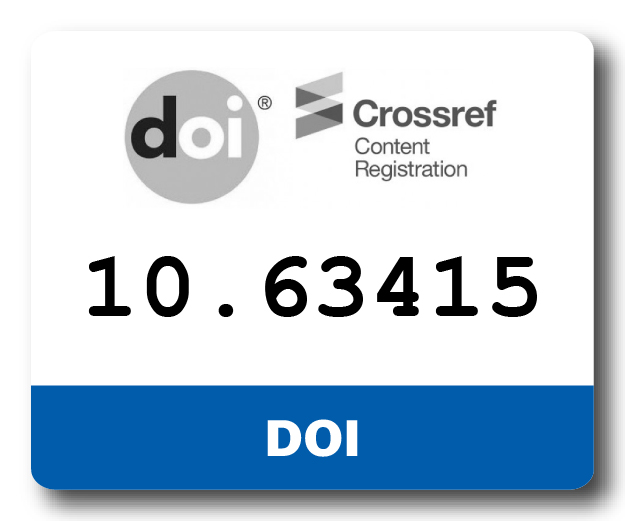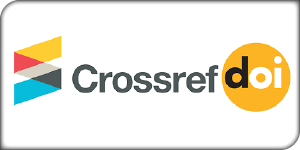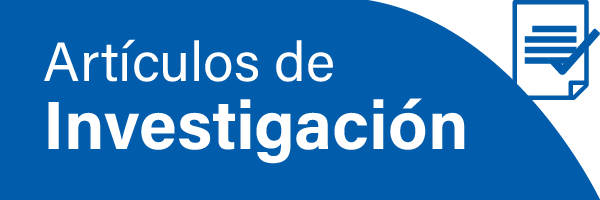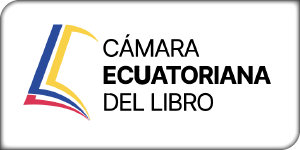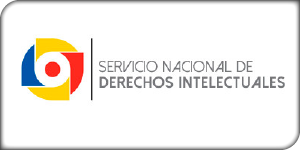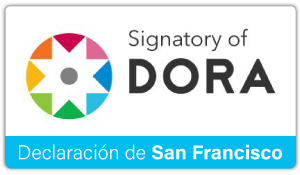Rol de los Agentes de Inteligencia Artificial en la Promoción de una Educación de Calidad
Una Perspectiva Basada en los Objetivos de Desarrollo Sostenible de la Organización de Naciones Unidas
DOI:
https://doi.org/10.63415/saga.v2i2.81Palabras clave:
Agentes de Inteligencia Artificial, educación inclusiva, Objetivos de Desarrollo Sostenible, ODS 4, Aprendizaje 5.0Resumen
La presente investigación analizará las potencialidades de los Agentes de Inteligencia Artificial (Agentes de IA) como herramientas indispensables para transformar la educación, ya que alinearse con el Objetivo de Desarrollo Sostenible 4, buscará garantizar el acceso a una educación predominantemente inclusiva, equitativa y de elevada calidad. Partiendo de un enfoque de naturaleza cualitativa, mediante la revisión documental y el análisis de los artículos académicos más destacados a nivel mundial de los últimos cuatro (04) años, se identificó que los agentes de IA permiten personalizar e individualizar la experiencia de aprendizaje, automatizar tareas docentes, ofrecer tutorías inteligentes y reducir esas brechas que existen en el mejoramiento del rendimiento académico, para así consolidar y propiciar el desarrollo de habilidades como el pensamiento analítico, la capacidad de creación e innovación, el pensamiento crítico y el trabajo colaborativo entre los estudiantes. La implementación afronta desafíos como: la indiscutible brecha digital, la poca capacitación docente, el temor al cambio, los sesgos algorítmicos y los riesgos a la privacidad de esos datos que, por protección a los estudiantes no deben ser divulgados. La investigación concluye que, para maximizar la implementación de los agentes de inteligencia artificial, es crucial invertir en infraestructura digital, capacitar a los docentes y establecer marcos referenciales que aseguren un uso ético y equitativo, pues los agentes de IA tienen el potencial de transformar la educación, promoviendo el logro del ODS 4, siempre que sean oportunamente abordados los desafíos con una perspectiva estratégica y sostenible a largo plazo.
Descargas
Referencias
AlSagri, H.S., Sohail, S.S. Evaluating the role of Artificial Intelligence in sustainable development goals with an emphasis on “quality education”. Discov Sustain 5, 458 (2024). https://doi.org/10.1007/s43621-024-00682-9
Arevalo Erique, M. A., Luna Alvarez, H. E., Ching Valle, J. X., & Zambrano Vera, A. M. (2023). Educación 5.0: más que un cambio de tecnología, un paso adelante en la educación. Revista Conrado, 19(94), 384-392.
Beghetto, R. A. (2023). A new horizon for possibility thinking: A conceptual case study of Human × AI collaboration. Possibility Studies & Society, 1(3), 324-341. https://doi.org/10.1177/27538699231160136
Canayaz, M. (2025). AI Agency. SSRN. https://papers.ssrn.com/sol3/Delivery.cfm/5109326.pdf?abstractid=5109326&mirid=1&type=2
Creely, E., Henriksen, D., Henderson, M. & Mishra, P. The Staging of AI: Exploring Perspectives about Generative AI, Creativity and Education. http://dx.doi.org/10.2139/ssrn.5008581
Doshi, A. R., & Hauser, O. (2023). Generative artificial intelligence enhances creativity. Science Advances, 10(28). http://dx.doi.org/10.2139/ssrn.4535536
Ferk Savec, V., & Jedrinović, S. (2025). The Role of AI Implementation in Higher Education in Achieving the Sustainable Development Goals: A Case Study from Slovenia. Sustainability, 17(1), 183. https://doi.org/10.3390/su17010183
Ghoneim Sywelem, Mohamed M. (2024). Artificial Intelligence and the Sustainability of Educational Services: An Overview. World Journal of Social Sciences and Humanities. 10. 8-17. https://doi.org/10.12691/wjssh-10-1-2
Gligorea, I., Cioca, M., Oancea, R., Gorski, A.-T., Gorski, H., & Tudorache, P. (2023). Adaptive Learning Using Artificial Intelligence in e-Learning: A Literature Review. Education Sciences, 13(12), 1216. https://doi.org/10.3390/educsci13121216
Gómez, G & Zea, C. (1998). Incorporación de agentes inteligentes en ambientes de aprendizaje. Ie Comunicaciones Revista Iberoamericana De Informatica Educativa.
Henriksen, D., Creely, E., & Mehta, R. (2022). Rethinking the Politics of Creativity: Posthumanism, Indigeneity, and Creativity Beyond the Western Anthropocene. Qualitative Inquiry, 28(5), 465-475. https://doi.org/10.1177/10778004211065813
Jin, S. V., & Youn, S. (2022). Social Presence and Imagery Processing as Predictors of Chatbot Continuance Intention in Human-AI-Interaction. International Journal of Human–Computer Interaction, 39(9), 1874–1886. https://doi.org/10.1080/10447318.2022.2129277
Kim, J. Artificial Intelligence in Achieving Sustainable Development: Expectations of Undergraduate Students. TechTrends 69, 138–148 (2025). https://doi.org/10.1007/s11528-024-01025-1
K.S. Suryanarayana, V.S. Prasad Kandi, G. Pavani, Akuthota Sankar Rao, Sandeep Rout, T. Siva Rama Krishna. (2024). Artificial Intelligence Enhanced Digital Learning for the Sustainability of Education Management System. The Journal of High Technology Management Research,. Volume 35, Issue 2, 2024,100495, ISSN 1047-8310. https://doi.org/10.1016/j.hitech.2024.100495
Mollick, Ethan R. and Mollick, Lilach, Using AI to Implement Effective Teaching Strategies in Classrooms: Five Strategies, Including Prompts (2023). The Wharton School Research Paper. http://dx.doi.org/10.2139/ssrn.4391243
Mollick, Ethan R. & Mollick, Lilach, Assigning AI: Seven Approaches for Students, with Prompts (2023). The Wharton School Research Paper. http://dx.doi.org/10.2139/ssrn.4475995
Mollick, Ethan R. & Mollick, Lilach, Instructors as Innovators: a Future-focused Approach to New AI Learning Opportunities, With Prompts (2024). The Wharton School Research Paper. http://dx.doi.org/10.2139/ssrn.4802463
Mollick, Ethan., Mollick, Lilach., Bach, Natalie., Ciccarelli, LJ., Przystanski, Ben & Ravipinto, Daniel. (2024). AI Agents and Education: Simulated Practice at Scale. http://dx.doi.org/10.2139/ssrn.4871171
Naciones Unidas. (s.f.). Educación - Desarrollo Sostenible. https://www.un.org/sustainabledevelopment/es/education/
Nadeem, Wasif & Arsalan, Huzaifa. (2024). Promoting Environmental Sustainability through AI-driven Education Initiatives. https://doi.org/10.13140/RG.2.2.24109.09443
Organización de las Naciones Unidas para la Educación, la Ciencia y la Cultura (2016). Educación 2030: Declaración de Incheon y Marco de Acción para la realización del Objetivo de Desarrollo Sostenible 4: Garantizar una educación inclusiva y equitativa de calidad y promover oportunidades de aprendizaje permanente para todos. https://unesdoc.unesco.org/ark:/48223/pf0000245656_spa
Pataranutaporn, P., Doudkin, A., & Maes, P. (2025). OceanChat: The Effect of Virtual Conversational AI Agents on Sustainable Attitude and Behavior Change. https://doi.org/10.48550/arXiv.2502.02863
Qiu, Y., Khan, M. H., Zhu, S., Chen, S., & Chan, C. (2024). Enhancing Sustainability in Academic Guidance: Develop an AI-Driven Agent for Education 5.0. INTI Journal, 2024. Retrieved from https://iuojs.intimal.edu.my/index.php/intijournal/article/view/550
Resnick, M. (2024). Generative AI and Creative Learning: Concerns, Opportunities, and Choices. An MIT Exploration of Generative AI. https://doi.org/10.21428/e4baedd9.cf3e35e5
Swindell, A., Greeley, L., Farag, A., & Verdone, B. (2024). Against artificial education: Towards an ethical framework for generative artificial intelligence (AI) use in education. Online Learning, 28(2), 7–27. https://doi.org/10.24059/olj.v28i2.4438
Tiwari, R. (2023). The integration of AI and machine learning in education and its potential to personalize and improve student learning experiences. International Journal of Scientific Research in Engineering and Management, 7. https://doi.org/10.55041/IJSREM17645
Villareal, G. (2003). Agentes inteligentes en educación. Edutec: Revista electrónica de tecnología educativa, ISSN 1135-9250, Nº. 16, 2003. https://doi.org/10.21556/edutec.2003.16.54
Vinchon, F., Lubart, T., Bartolotta, S., Gironnay, V., Botella, M., Bourgeois-Bougrine, S., ... & Gaggioli, A. (2023). Artificial Intelligence & Creativity: A manifesto for collaboration. The Journal of Creative Behavior, 57(4), 472-484. https://doi.org/10.1002/jocb.597
Vinuesa, R., Azizpour, H., Leite, I., Balaam, M., Dignum, V., Domisch, S., Felländer, A., Langhans, S. D., Tegmark, M., & Fuso Nerini, F. (2020). The role of artificial intelligence in achieving the Sustainable Development Goals. Nature communications, 11(1), 233. https://doi.org/10.1038/s41467-019-14108-y
Publicado
Número
Sección
Licencia
Derechos de autor 2025 Carluys Suescum Coelho, Car-Emyr Suescum Coelho, Carlysmar Suescum Coelho, Carelys Suescum Coelho, Carmen María Coelho Freitas (Autor/a)

Esta obra está bajo una licencia internacional Creative Commons Atribución-NoComercial 4.0.




